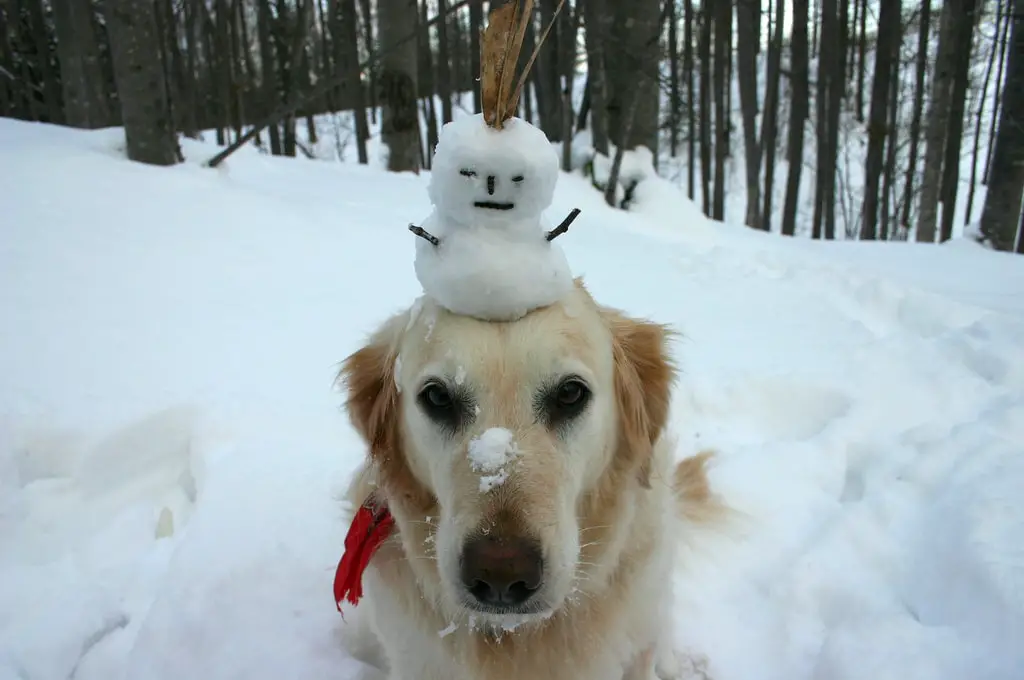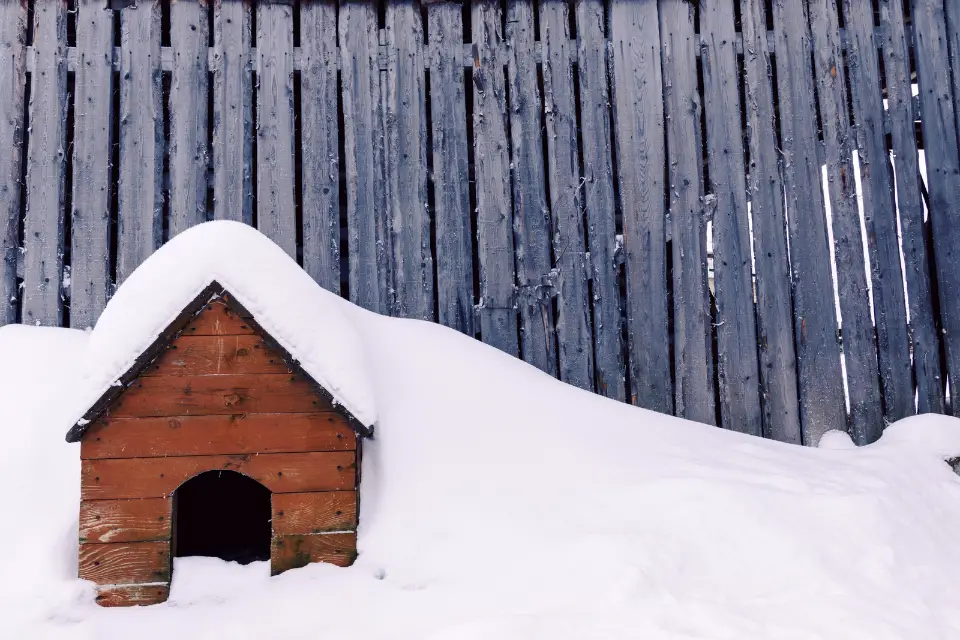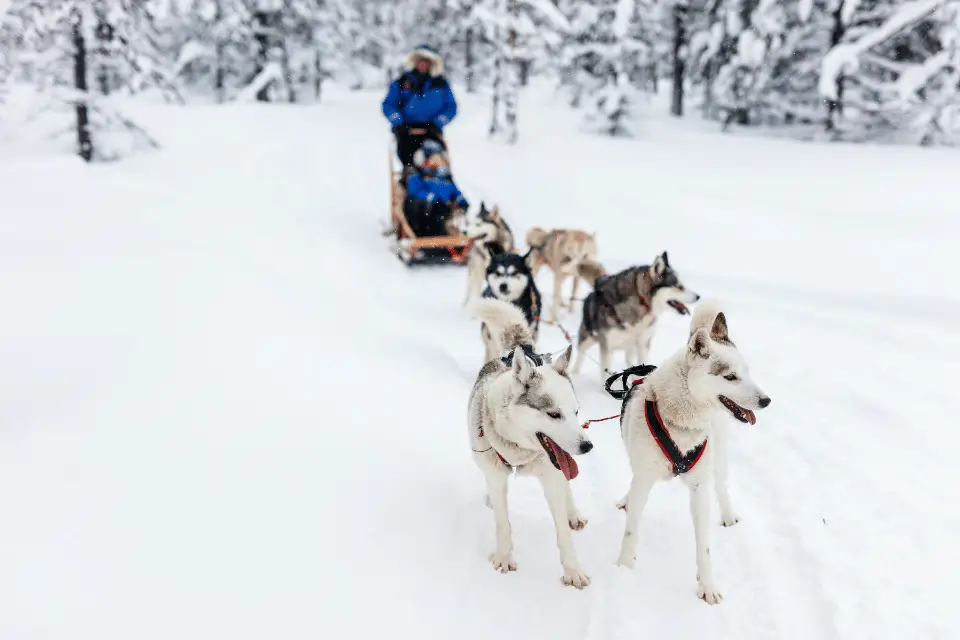Why do dogs love to eat snow
Some dogs absolutely love being in the snow and some of them actually eat the white fluffy stuff. This kind of behavior can be difficult to explain and there are several probable causes for it. It is possible that your dog just enjoys the sensation of the snow melting in his/her mouth; however, there is also a chance that disease is triggering your dog’s snow eating habits. Let’s explore the possible reasons why your dog is eating snow.

The Ancient Instincts Driving Dogs to Snow
Our canine companions' behavior can often be traced back to their ancestors. In the case of snow eating, this act was crucial for survival during the ice-cold winters. Ancestral dogs turned to snow as a vital source of hydration when other water bodies were frozen. This deep-rooted instinct may still influence modern dogs, prompting them to eat snow as a natural, albeit often unnecessary, reflex.
Thirst Quenching: Snow as an Alternative Water Source
Dehydration in dogsis a serious concern, particularly in colder months when natural water sources can be scarce. Dogs that lack access to fresh water might instinctively turn to snow. While not as effective as liquid water, snow can provide temporary relief from thirst. It is essential for pet owners to ensure their dogs have access to clean water at all times to prevent them from seeking out less suitable sources like snow.
Sensory Appeal: The Fascination with Snow's Texture and Temperature
Dogs are known for their curiosity and their desire to explore the world through their senses. The unique texture and cold sensation of snow can be particularly appealing. This initial curiosity can develop into a habitual behavior, especially if the dog finds the experience of the melting snow enjoyable and refreshing.
Health Implications of Snow Consumption in Dogs
While a few bites of snow are generally harmless, excessive consumption can indicate or even cause health issues. Dogs that consume large amounts of snow might be attempting to alleviate discomfort from conditions such as diabetes, kidney disease,or thyroid imbalances. Increased water intake and snow eating can be symptoms of these conditions, known collectively as polydipsia.
The Dangers of Contaminated Snow
Snow that has been contaminated with chemicals like antifreeze or rodenticides poses a significant risk to dogs. Consumption of such snow can lead to severe poisoning, which in some cases may be fatal. Dog owners must be vigilant about the quality of snow their pets consume and be aware of the potential for contamination, especially in urban or suburban environments.
Preventing Health Issues Related to Snow Eating
Educating dog owners about the potential risks associated with snow consumption is crucial. Key points include:
- Monitoring the amount of snow eaten by their pets.
- Ensuring constant access to fresh, clean water to reduce the likelihood of dogs turning to snow.
- Recognizing signs of underlying health issues that might manifest as increased snow eating.
- Understanding the risks of snow contaminated with toxins and chemicals.
FAQs: Understanding Your Dog's Snow Eating Habits
Q: How much snow consumption is safe for dogs?
A: Small, occasional amounts of clean snow are generally safe. However, eating large quantities or consuming contaminated snow can be harmful.
Q: Can eating snow be a sign of health issues in dogs?
A: Yes, excessive snow eating can be a symptom of underlying health problems like diabetes or kidney disease. If your dog is eating more snow than usual, a veterinary consultation is advised.
Q: What precautions should I take if my dog eats snow?
A: Ensure the snow is free from harmful substances and monitor the amount your dog consumes. Providing constant access to fresh water can reduce their inclination to eat snow.
In summary, the habit of dogs eating snow is rooted in both evolutionary history and contemporary behavioral tendencies. While it is generally safe in small amounts, understanding the reasons behind this behavior and the potential risks associated with it is vital for maintaining the health and well-being of our canine companions. As responsible pet owners, being attentive to these factors ensures our furry friends can enjoy the winter season safely and happily.






Comments
Appreciate the article - lots of good information!
I take care of a ~1 year old female Shepsky part time. She loves eating snow even though she gets adequate water. The snow eating gives her loose stool and the need to pee often. How does one use positive reinforcement to stop a dog from eating snow? She will drop snow on the "Leave it" command, but this is not a solution when snow it everywhere. It seems somewhat impossible.